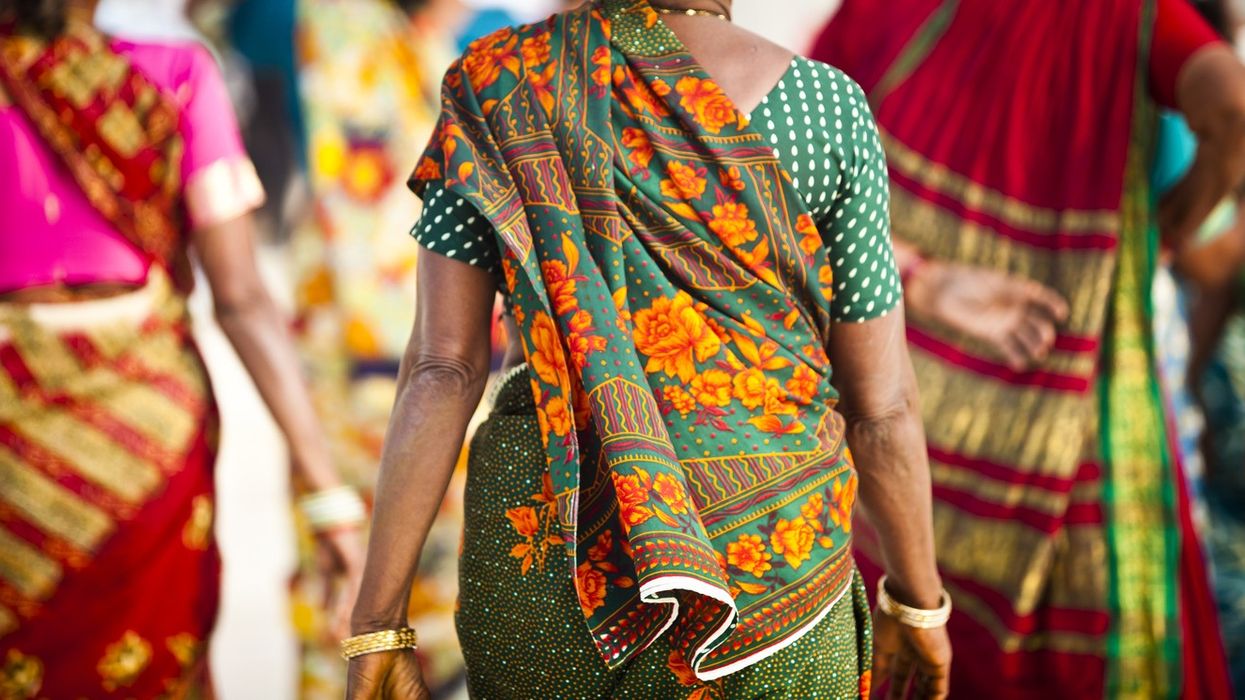The five- or six-yard beauty weaved in different parts of India, with unique designs and cultural and ethnic imprints on the fabric, the saree, has now become a global fashion.
But in many villages and parts of India, many women drape sarees as everyday wear, which has been further revealed through a study that prolonged draping of sarees can lead to saree-induced cancer, especially skin-oriented cancers.
In a country where sarees grace the silhouettes of women across diverse regions, the notion of saree cancer might initially seem obscure. However, for those familiar with the intricacies of garment-wearing practices, the connection becomes clearer.
Dr Vivek Gupta, a cancer surgeon at PSRI Hospital in Delhi, sheds light on this phenomenon, attributing saree cancer to the repetitive friction caused by tying the traditional attire tightly around the waist.
The case of a 40-year-old female, a case in south India in 2020, with a non-healing ulcer escalating in size over six months, offers a poignant illustration of the challenges posed by saree cancer. Measuring at 4x2 cm, the ulcer's persistence despite excision and subsequent re-growth highlights the complexity of this condition. With margins testing positive, the necessity for re-excision highlights the urgency of addressing this burgeoning issue.
Contrary to popular belief, saree cancer's prevalence extends beyond mere fabric abrasion. Driven by regional hygiene practices and climatic conditions, certain areas like Bihar and Jharkhand report a higher incidence of this cancer.
The humid subtropical climate exacerbates skin irritation, leading to a vicious cycle of damage and healing conducive to saree cancer development, particularly Squamous Cell Carcinoma (SCC).
In addition to saree cancer, India hosts a spectrum of clothing-related skin malignancies, each rooted in distinct cultural practices. In Kashmir, the tradition of using Kangris, earthen pots filled with embers for warmth, has led to the emergence of Kangri cancer. Prolonged exposure to the heat emanating from Kangris, particularly in abdominal and thigh areas, underscores the diverse aetiology of skin cancers across the nation.
Moreover, the impact of clothing on health transcends gender boundaries. Research indicates that tight-fitting attire, including jeans, poses health risks for men, potentially impacting fertility and increasing the risk of testicular cancer. Skin marks, redness, or breathing difficulties serve as crucial indicators, prompting individuals to reassess their clothing choices for optimal health outcomes.
As medical institutions like RN Cooper Hospital in Mumbai delve deeper into the intricacies of clothing-related skin cancers, the urgency for preventive measures becomes evident. Public awareness campaigns, coupled with interventions addressing hygiene practices and clothing norms, offer promising avenues for mitigating the burden of saree cancer and its counterparts.
In the tapestry of Indian culture, attire serves as more than mere fabric; it embodies tradition, identity, and heritage. Yet, amid the folds of tradition lie nuanced health challenges, demanding attention and adaptation. By unravelling the mysteries of saree cancer and its counterparts, India navigates towards a future where cultural richness harmonises with optimal health and well-being for all.




